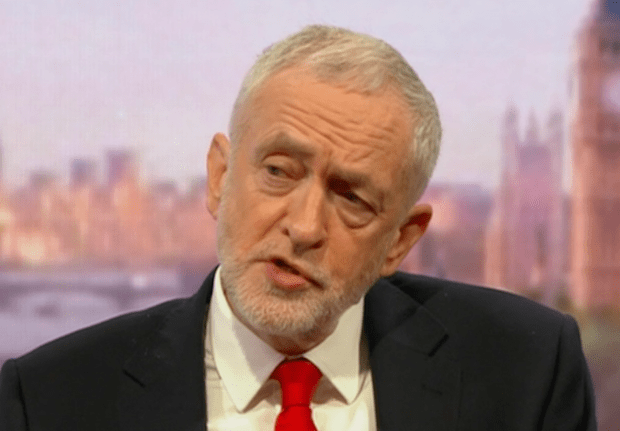The Syria missile strike has been backed by the governments of Germany, Canada, New Zealand and more – but not Jeremy Corbyn. Not for him the convention of the Opposition leader supporting the government in issues of war and peace. ‘I say to the Prime Minister: where is the legal case for this?’ he told Andrew Marr this morning. The legal case has been published here, at some length. Corbyn then suggested that international OPCW inspectors should be called in to judge what had happened. But is there any doubt about what happened? Today, the Sunday Times publishes testimonies of victims of the gas attack: accounts of differing people corroborate the use of a chlorine bomb. Even the United Nations accepts that sending in international inspectors is unrealistic in the middle of a civil war. The UN comes to its judgements about poison gas use by interviewing survivors and the medics who treated them, just as the Sunday Times has now. (I gather, CNN will broadcast similar accounts later today.)
Were Bashar al-Assad to be found guilty, Corbyn then said, he should be told to ‘come in and destroy those weapons, as they did in 2013 and 2015’. Note he offers two dates: if weapons were destroyed in 2013 why should there have been the need to do anything in 2015? It’s also worth reprinting the United Nations assessment of the regularity of the chemical weapons attacks: suffice to say that having Assad agree to ‘destroy’ his chemical weapons in 2013 did not stop the litany of atrocities.

Corbyn then upbraided Theresa May for ‘following Donald Trump’s lead’. Would he have preferred her to act alone? The notion of the US taking the lead in an allied chain of command has been uncontroversial since D-Day, and this was always a question of Britain playing a minor supporting role in a US operation. There were about 100 missiles fired. Would the Pentagon really delay the whole operation for a UK parliamentary vote, so eight missiles to be contributed by ageing RAF aircrafts in Cyprus? (Probably the same ones I saw when I lived out there in the 1990s.) Governments are elected to make such decisions: this isn’t a war, but a one-off strike.
Finally, Corbyn said that Britain has great resources as a country: ‘can’t we use those abilities to save lives?’ I’m not sure what he thinks a humanitarian airstrike is for. Marr pointed out to Corbyn that “nobody died as a result of these attacks” in spite of dozens of missiles deployed. The only purpose of this missile strike was to make Assad less able (and likely) to use poison gas on his own people. A textbook definition of using Britain’s abilities to save lives
I’m not going to accuse Corbyn of being unpatriotic: he’s an Opposition leader and he’ll have decided it’s his job to raise questions. But in this case, each of the questions he raises has an easy and obvious answer. As I suspect tomorrow’s debate in parliament will demonstrate.







Comments